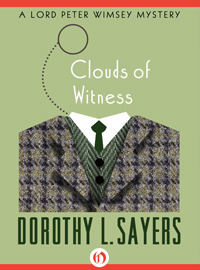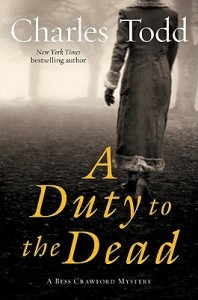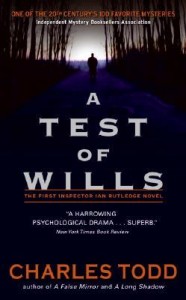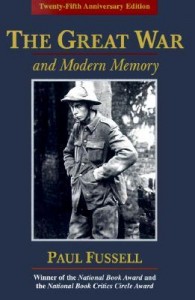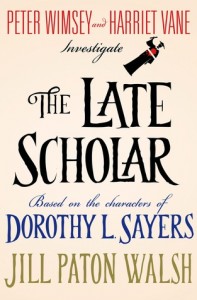 Format read: ebook provided by NetGalley
Format read: ebook provided by NetGalleyFormats available: ebook, hardcover, paperback
Genre: Mystery
Series: Lord Peter Wimsey and Harriet Vane, #4
Length: 369 pages
Publisher: Minotaur Books
Date Released: June 17, 2014
Purchasing Info: Author’s Website, Publisher’s Website, Goodreads, Amazon, Barnes & Noble, Kobo, Book Depository
When a dispute among the Fellows of St. Severin’s College, Oxford University, reaches a stalemate, Lord Peter Wimsey discovers that as the Duke of Denver he is “the Visitor”—charged with the task of resolving the issue. It is time for Lord Peter and his detective novelist wife, Harriet, to revisit their beloved Oxford, where their long and literate courtship finally culminated in their engagement and marriage.
At first, the dispute seems a simple difference of opinion about a valuable manuscript that some of the Fellows regard as nothing but an insurance liability, which should be sold to finance a speculative purchase of land. The voting is evenly balanced. The Warden would normally cast the deciding vote, but he has disappeared. And when several of the Fellows unexpectedly die as well, Lord Peter and Harriet set off on an investigation to uncover what is really going on at St. Severin’s.
My Review:
The Lord Peter Wimsey series always makes me think of the 1920s, even though the later novels have continued the story well past that era. The early stories are steeped in that between the wars period, and the relationships that continue in this new series all carry some reminders of their beginnings.
And yes, I’ve read the entire series, including the late additions by Jill Paton Walsh. The original stories still sparkle, especially the series-within-a-series of Lord Peter’s meeting, defense and courtship of the mystery novelist Harriet Vane. (Start with Strong Poison)
But this story, The Late Scholar, takes place after World War II. Peter’s situation has changed from the early stories, where he was the second son of the Duke of Denver, and was permitted to spend his time and energy solving mysteries as a private detective. He wasn’t expected to inherit the estate, so it didn’t matter so much how he occupied himself.
And he was an excellent detective.
The war and it’s aftermath changed things. Both his brother and his nephew are dead. Peter is now the Duke, and has inherited both the privileges and the responsibilities that come with the position. And that’s where this story begins.
The Duke of Denver, whoever might hold the title, is also the official ‘visitor’ for one of the Oxford colleges. The duties of the Visitor are to install new Wardens for the college and settle contentious disputes as a last resort.
St. Severin’s is embroiled in a conflict that threatens to split the college. They have a valuable manuscript that some of the college Fellows want to sell, in order to buy land with the money. The college is in fairly dire financial straits, so purchasing land that is in the path of development could solve their difficulties.
However, the manuscript is not just precious, but possibly one of a kind. It should be part of the research of the college. And the land deal seems rather shady. Also, the Warden is missing, and someone seems to be trying to rig the vote by scaring off or downright murdering the possible voters until he gets the desired result.
The college thinks that Peter will just come down to Oxford and make their decision, for or against the sale. They don’t know him at all. He comes down to investigate the circumstances that have led them to this sorry pass, especially the missing Warden. And the increasingly high pile of bodies.
As he delves into the origins of the dispute, he finds that the closed community of the college has nursed long-standing grievances on all sides, and that there may be more than one murderer on the loose.
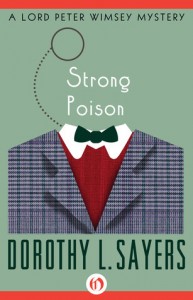 Escape Rating A-: In the first Lord Peter and Harriet Vane story, Harriet tells Peter that he has a great talent for “talking piffle”, which he still does, and charmingly so. But he no longer presents himself as a lightweight, even though he does try to conceal his past as a private detective as long as possible.
Escape Rating A-: In the first Lord Peter and Harriet Vane story, Harriet tells Peter that he has a great talent for “talking piffle”, which he still does, and charmingly so. But he no longer presents himself as a lightweight, even though he does try to conceal his past as a private detective as long as possible.
This story does have the element of a “visit with old friends”, and I would love it just for that. It is marvelous to see how Peter and Harriet (and Bunter) are getting on, 20 years after we first met them. They are parents (Bunter too) their sons are growing up, and the world that they knew in the 1920s (including Bunter’s idea of service) have changed. Those changes are reflected in the way that their children are friends without the same class distinctions that Bunter still feels so strongly.
The case is an absolute hoot. Not only are there the plots and counter-plots among the faculty (I kept thinking of Kissinger’s comment that “academic politics are so vicious because the stakes are so small”) but there are glimpses of real Oxford luminaries, including J.R.R. Tolkien and C.S. Lewis and their set.
The murders all seem to be modeled on cases in Harriet’s novels, many of which were fictionalized versions of Peter’s actual cases. It gives the author a chance to both highlight and poke a little fun at the convolutions of some of the earlier stories.
Even though some of the evildoers are fairly obvious, the reasons behind the whole mess take quite a while to unravel. And it’s an utterly lovely journey.


